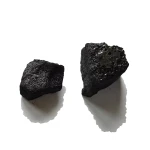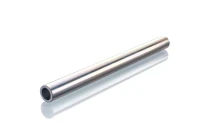- What are Adhesives and what are the primary types of adhesives used in the hydrogen industry?
- What are the key properties of adhesives that make them suitable for use in hydrogen applications?
- Where are adhesives used in the hydrogen economy?
- What are the challenges associated with using adhesives in hydrogen environments, and how are these challenges addressed?
- What advancements in adhesive technology are driving improvements in hydrogen infrastructure and equipment?
- How do adhesives enhance the durability and performance of hydrogen transport systems?
- How do adhesives support the lightweighting of components in hydrogen vehicles and refueling stations?
- What is the importance of adhesives in the context of explosion protection and safety in hydrogen environments?
Browse all adhesives from leading suppliers on our marketplace!
What are Adhesives and what are the primary types of adhesives used in the hydrogen industry?
Adhesives are resin-based materials that can hold two components together in a functional manner by surface attachment that resists separation. In the hydrogen industry, adhesives are used in the assembly process of various devices and their integral components (e.g. valves, compressors and pressure sensors, fuel cells and electrolyzers) such as structural adhesives and adhesives that provide sealing properties for leak-proof joints.
What are the key properties of adhesives that make them suitable for use in hydrogen applications?
There are different properties of adhesives that make them suitable for hydrogen applications:
- Adhesion properties,
- No Hydrogen permeation,
- Chemical and temperature resisitance.
- Structural properties allow different substrates to be joined together, while sealing properties keep hydrogen inside the system.
Where are adhesives used in the hydrogen economy?
Adhesives are used throughout the H2 ecosystem:
- H2 production,
- H2 transportation/storage/ distribution,
- H2 End-use Applications

a. How do adhesives contribute to the construction and maintenance of hydrogen fuel cells?
- Flexibility in product design
- Fast and robust application process
- Integration of additional functionalities
- Improving efficiency
b. How are adhesives utilized in the assembly and operation of electrolysers for hydrogen production?
- Increase efficiency through design improvement
- Enable fast manufacturing process through automation
- Reduce mechanical joining solutions
- Ensure performance, reliability & durability
What are the challenges associated with using adhesives in hydrogen environments, and how are these challenges addressed?
Adhesives are materials that are compatible when in contact with hydrogen, and all the adhesiv products should be thoroughly tested to ensure this compatibility. They should also be tested under various pressures to determine the maximum pressure that adhesive joints can withstand. Additionally, the process can be automated, offering further efficiency and consistency in application.
What advancements in adhesive technology are driving improvements in hydrogen infrastructure and equipment?
Companies in the hydrogen ecosystem are developing new technologies to reduce weight, manufacturing costs, and component requirements to increase efficiency and durability. Adhesive technologies support this development through the wide range of options that adhesives, sealants, and coatings offer.
How do adhesives enhance the durability and performance of hydrogen transport systems?
By allowing more design options for critical devices and assets, adhesives improve performance and durability along the life cycle.
How do adhesives support the lightweighting of components in hydrogen vehicles and refueling stations?
Adhesives play a crucial role in lightweighting components for hydrogen vehicles and refueling stations by replacing traditional mechanical fasteners like bolts and screws. They contribute to weight reduction in several ways:
- Reduced Material Requirements: Adhesives distribute stress evenly across bonded surfaces, allowing for the use of thinner materials without sacrificing strength. This reduces overall component weight.
- Seamless Bonding: Adhesives create a seamless bond between materials, which eliminates the need for overlapping joints and additional fasteners, further reducing weight.
- Improved Structural Integrity: Adhesives enhance the structural integrity of components by bonding dissimilar materials effectively, which can result in lighter designs due to optimized material selection.
- Vibration Damping: Adhesives dampen vibrations and absorb shocks, which reduces the need for additional structural reinforcement, thereby lowering weight.
- Corrosion Resistance: Some adhesives offer corrosion protection, which extends the lifespan of components and reduces the need for heavier protective coatings.
In summary, adhesives enable the design and manufacture of lighter, more efficient components for hydrogen vehicles and refueling stations by replacing traditional fastening methods and enhancing structural performance.
What is the importance of adhesives in the context of explosion protection and safety in hydrogen environments?
Handling hydrogen presents technical challenges. As the technology evolves, there are unmet needs in design and assembly improvements, particularly concerning safety aspects associated with leakages. Adhesives and sealants address this challenge by providing leak-proof solutions, preventing hydrogen from leaking out and posing dangers such as fire, explosion, or environmental harm.
Sealing and Leak Prevention: Adhesives create tight seals between components, preventing hydrogen gas from leaking. This is crucial as hydrogen is highly flammable and any leaks can pose a significant explosion risk.
Bond Strength and Durability: Adhesives provide strong and durable bonds between materials, maintaining structural integrity under various conditions. This reliability is essential for preventing mechanical failures that could lead to hydrogen leaks.
Compatibility and Resistance: Adhesives are designed to be compatible with hydrogen environments, often offering resistance to high pressures and temperatures. They can withstand the unique challenges posed by hydrogen without degradation or failure.
Reduced Risk of Ignition: Unlike traditional mechanical fasteners, adhesives eliminate potential ignition sources such as sparks from metal-on-metal contact, reducing the risk of accidental ignition in hydrogen-rich atmospheres.
Integrated Safety Features: Some adhesives incorporate special formulations that enhance safety, such as flame-retardant properties or self-extinguishing capabilities, further mitigating risks in hydrogen environments.
Content contributed by Henkel Adhesive Technologies
Henkel's Adhesive Technologies business is world’s number one producer in adhesives, sealants and functional coatings for industrial customers as well as for consumers and craftsmen. Being industry and application experts across manufacturing industries worldwide, we work closely with our customers and partners to create sustainable value for all stakeholders – with high-impact solutions based on an unmatched technology and trusted brand portfolio.










